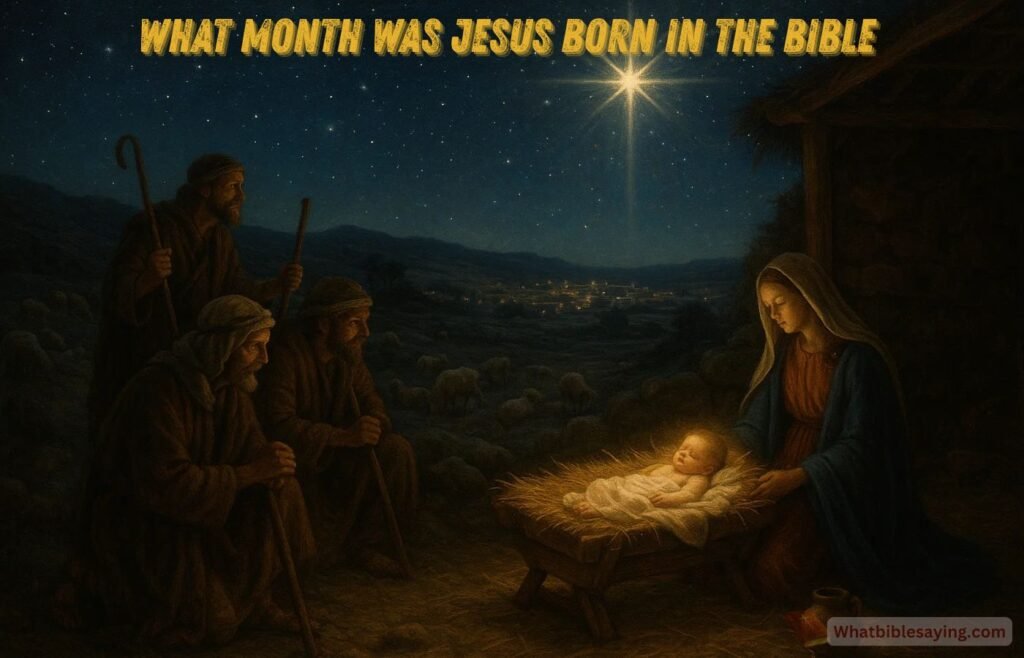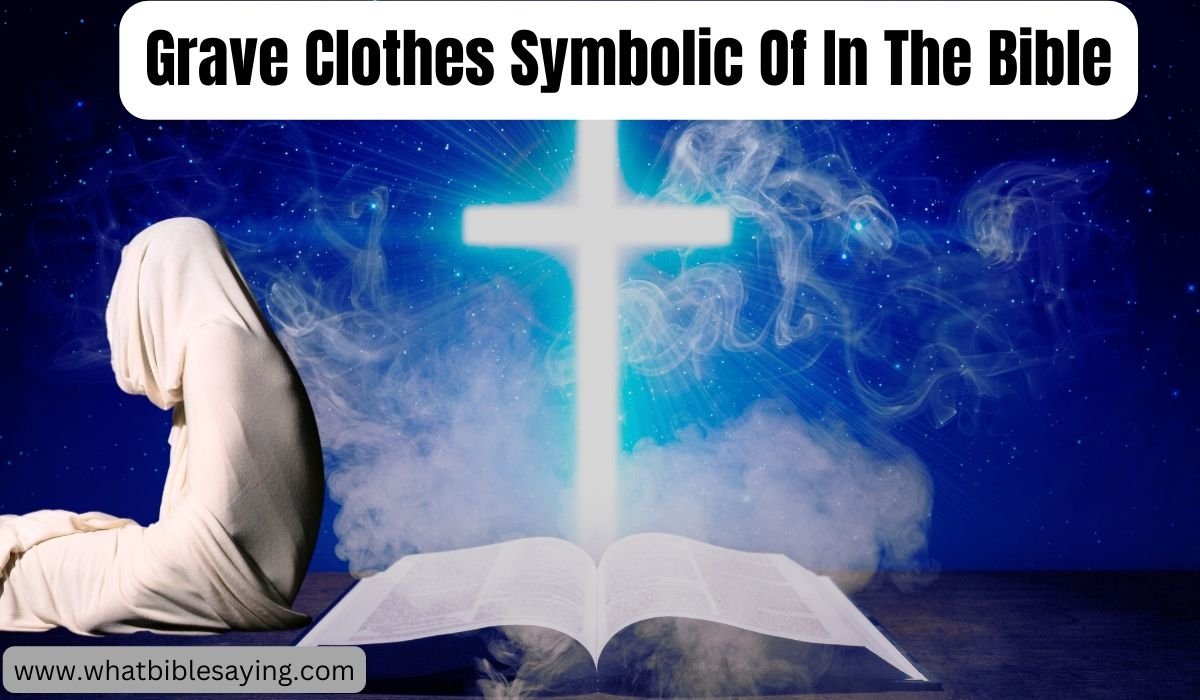Introduction
For generations, believers have asked a simple but deeply meaningful question: What month was Jesus born in the Bible? It is a question that arises each year as Christmas approaches, and one that many faithful hearts long to know. After all, if our Savior came into the world to bring peace and hope, surely knowing the time of His arrival matters, doesn’t it?
The truth is, the Bible never gives us an exact date or month for Jesus’ birth. Matthew and Luke, the two Gospel writers who share the nativity story, provide rich details about the people, the angels, the shepherds, and the wise men, but not the calendar date. Yet, the Scriptures do offer us clues. These clues, when considered alongside Jewish history and cultural practices of the time, give us a better understanding of when our Lord may have been born.
As we walk through the Scriptures and history together, I invite you to hold this truth in your heart: the Bible emphasizes why Jesus was born, not when. Still, exploring the season of His birth helps us connect more deeply with God’s plan of salvation.
Does the Bible Mention the Month of Jesus’ Birth?
If you open your Bible and look for a verse that says, “Jesus was born in December” or “Jesus was born in September,” you won’t find one. The Gospels give us the story in broad strokes, with spiritual meaning at the center.
Luke 2 describes how Mary and Joseph traveled from Nazareth to Bethlehem because of a decree from Caesar Augustus. There, in the little town of David, Mary gave birth to her firstborn Son. Angels announced the good news to shepherds, who went quickly to see the newborn King. Matthew 2 tells us about wise men from the east who followed a star and brought Him gifts.
But not once do Matthew or Luke write down the month or day. Why? Perhaps God wanted the focus to remain not on the calendar, but on the Person, Jesus Christ, the Savior of the world.
The Clues Found in Scripture
Even though the Bible does not plainly say the month, it does give hints. When we carefully read Luke’s Gospel and consider the Jewish customs of the time, patterns begin to emerge.
Shepherds in the Fields at Night
Luke 2:8 tells us: “And there were shepherds living out in the fields nearby, keeping watch over their flocks at night.”
This small detail gives us a big clue. In the region of Judea, shepherds usually kept their flocks in the open fields only during warmer months, from spring through early fall. By late October or November, as the cold rains set in, flocks were generally moved to sheltered places.
So, if shepherds were outside at night, watching their sheep, it seems unlikely that Jesus was born in the middle of December. Instead, it suggests a time when the weather was still mild enough for them to remain outdoors, possibly late summer or early fall.
The Census Ordered by Caesar Augustus
Luke 2:1–5 explains that Mary and Joseph traveled to Bethlehem because of a census. This would have required families to return to their ancestral towns.
It is hard to imagine such a long journey being ordered in the dead of winter, when travel would have been especially difficult in Judea. Roman officials usually chose times that made sense for large movements of people, periods when roads were passable and weather more favorable.
Again, this points away from a mid-winter birth and leans toward a time when families could travel more easily.
The Birth of John the Baptist as a Timeline Clue
Luke also gives us details about John the Baptist’s conception and birth that help us trace Jesus’ birth. In Luke 1:5–25, Zechariah, John’s father, is described as serving in the priestly division of Abijah. Historical records suggest this division served at the Temple around June.
If John was conceived shortly after Zechariah’s service, that places his birth around March the following year. Luke 1:26 tells us that Jesus was conceived six months later. That would place His conception around March, leading to a birth in late September or early October.
This timeline aligns with the Feast of Tabernacles (Sukkot) on the Jewish calendar, a festival filled with themes of God dwelling with His people.
When Was Jesus’s True Birthday?
So, what does all this mean?
While the Bible does not give us a date, these scriptural and historical hints suggest that Jesus may have been born in late September or early October. Some scholars also propose a spring birth, aligning His coming with Passover symbolism.
But whether in the fall or spring, both possibilities connect to powerful biblical themes:
Fall (Tabernacles): God dwelling among His people (John 1:14).
Spring (Passover): The Lamb of God who takes away the sin of the world (John 1:29).
Either way, the message is clear: God entered human history at the perfect time.
Which Month Did They Give Birth to Jesus?
Church traditions developed over the centuries to celebrate Jesus’ birth on December 25 in the West and January 7 in the East. But those are traditions, not biblical statements.
The Bible suggests that a winter birth is less likely. The evidence points more toward late September or early October, in the Hebrew month of Tishri.
Still, it is important to remember: Scripture does not ask us to celebrate the exact day. Instead, it calls us to celebrate the reality that He was born.
What Month Was Jesus Born According to the Hebrew Calendar?
The Hebrew calendar gives us further clues. Many believe Jesus was born during the Feast of Tabernacles (Sukkot) in the month of Tishri (September/October).
John 1:14 says, “The Word became flesh and made his dwelling among us.” The Greek word translated “dwelling” literally means “tabernacled.” Some scholars see this as a deliberate connection between Christ’s birth and the Feast of Tabernacles.
If true, this means that Jesus’ coming into the world was perfectly timed with a feast that celebrated God’s presence with His people. What a beautiful picture of Emmanuel, God with us.
Was Jesus Born on January 7th?
In many Eastern Orthodox churches, Christmas is celebrated on January 7. This difference comes from the calendars used.
The Western church follows the Gregorian calendar, while the Eastern church continues to use the older Julian calendar. December 25 on the Julian calendar corresponds to January 7 on the Gregorian calendar.
So, while Orthodox Christians celebrate on a different day, it is still based on the same tradition of December 25.
Why December 25 Became Christmas
If the Bible points toward September or October, why do most Christians celebrate Christmas on December 25?
By the fourth century, church leaders in Rome chose December 25 as the official celebration of Christ’s birth. Some suggest it was to offer a Christian alternative to Roman festivals like Saturnalia or Sol Invictus, which honored the “unconquered sun” at the winter solstice.
Instead of worshiping the sun, the church declared, we worship the Son.
Another reason is symbolic: the darkest time of the year becomes the moment we celebrate the Light of the World coming into darkness (John 8:12).
The Deeper Meaning of Christ’s Birth
While it is interesting to explore dates and months, we must not lose sight of the deeper meaning. The true miracle is not the season of Jesus’ birth, but the fact that He was born at all.
The Son of God stepped into our broken world. He was born not in a palace, but in a manger. Angels sang, shepherds came, and wise men traveled from far away, all to honor the One who came to save us.
Every day of the year, we are invited to celebrate His coming, His presence, and His love.
Conclusion
So, what month was Jesus born in the Bible? The Scriptures do not tell us directly. Yet the clues point strongly toward late September or early October, during the time of the Feast of Tabernacles.
Church tradition, however, gave us December 25 in the West and January 7 in the East as the celebration of His birth.
But whether it was fall, spring, or winter, one truth remains: Jesus was born. Emmanuel, God with us, entered history to bring salvation. That is the heart of the Gospel.
When you reflect on the season of His birth, let it remind you that the Savior came not to give us a date to mark, but a life to live in Him.













